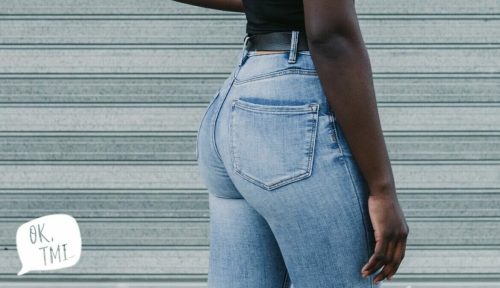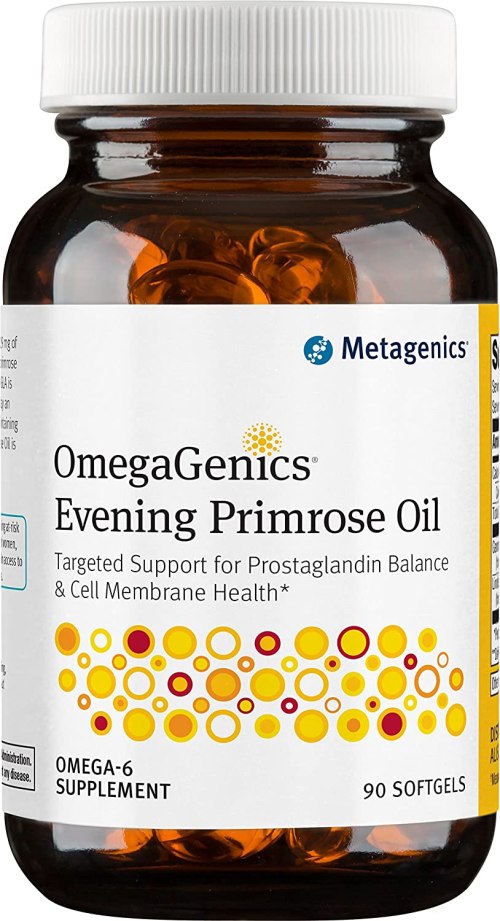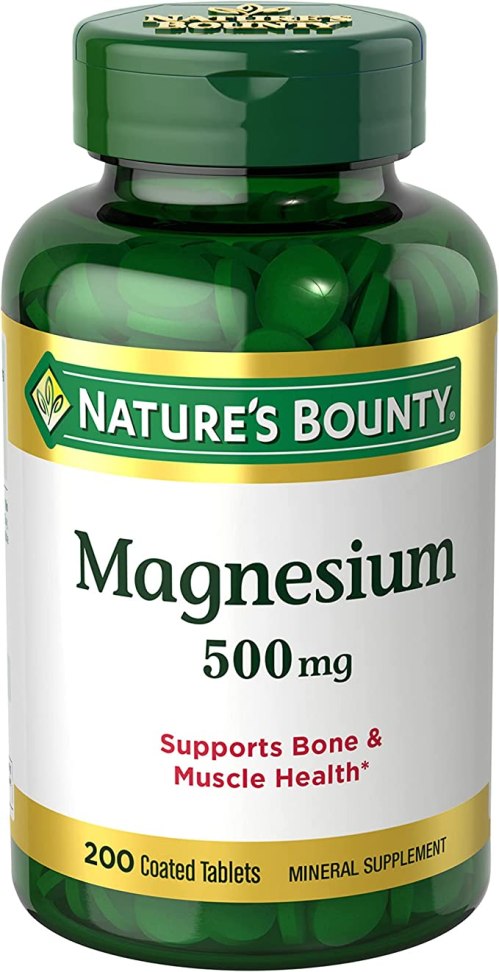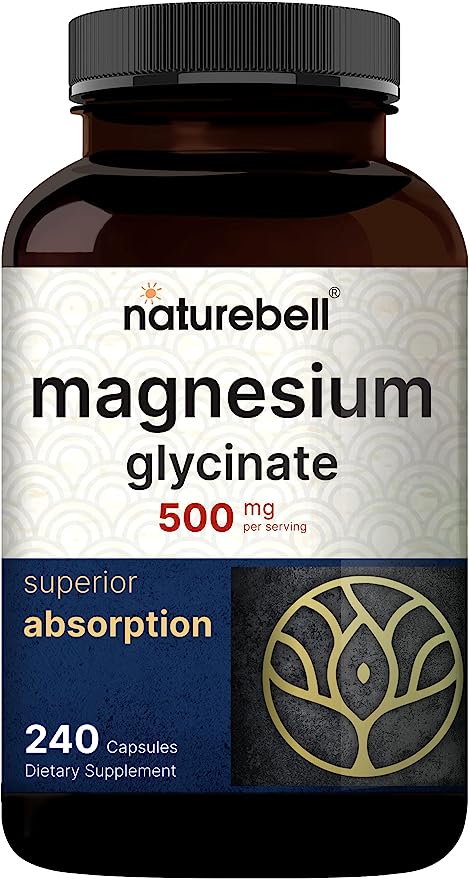Our editors independently select these products. Making a purchase through our links may earn Well+Good a commission
OK, TMI: Why Do I Get Butthole Cramps on My Period?
Consider muscle relaxation techniques and over-the-counter pain relief options to stop anus cramps during your period.

Confession: When I’m on my period, I don’t just get regular cramps. Sometimes, it feels like my butthole is repetitively making a fist. The feeling doesn’t usually last long, but when it happens, it’s like my butt got struck by a paralyzing lightning bolt, and I can only ask myself one question: how the heck do I stop anus cramps during my period?!
Experts in This Article
board-certified family physician and functional medicine practitioner with an expertise in gut health
anal surgeon and founder of Bespoke Surgical and Future Method
sports scientist and biomechanist
naturopathic doctor and author of Period Repair Manual
board-certified OB/GYN, reproductive endocrinologist, and infertility specialist
director of Face*ssage Programming and co-founder of Stretch*d
Whenever I tell someone about these uncommon cramps, I’m met with some combo of “OMG, what?!?” and “Sounds awful, can’t relate.” But, when this TikTok about butthole cramps got over 1 million likes and thousands of “same, girl!” comments, I knew I wasn’t alone. So, I reached out to a few doctors to better understand the phenomenon.
“It’s the charley horse of your ass,” says Evan Goldstein, DO, anal surgeon and founder of Future Method. A charley horse is an unexpected muscle spasm, and yep, it can happen between the cheeks too. It actually even has a technical name.
“The terminology is proctalgia fugax,” says Goldstein. That translates to “anal pain of unknown cause.” It occurs when the muscles that control your butthole (in the pelvic floor and anal canal) spasm and contract. Doctors don’t know exactly why butthole spasms happen, but they can be triggered by a few things, including, you guessed it, menstruation.
Why do I get cramps in my buttocks and anus during my period?
Lucky Sekhon, MD, a reproductive endocrinologist and infertility specialist at RMA of New York, says that butthole cramps tied to your period are the result of signals sent to your uterus that went a bit rogue.
“Rectal cramps, also known as proctalgia fugax, are cramps felt in the rectum due to the release of prostaglandins during your period,” Dr. Sekhon says.
Prostaglandins are lipids that act on tissues throughout your body, including in your uterus. During your period, prostaglandins are “responsible for the breakdown of the uterine lining,” Dr. Sekhon says, causing the blood vessels in your uterus to constrict and expel blood right before your period. Some lucky people (like me!) thus may also experience anal cramps as a side-effect of overactive prostaglandins.
You might also experience butthole cramps and even diarrhea during ovulation, explains Dr. Sekhon. But those happen for a different reason.
“It is possible to feel cramps or irritation from ovulation in the rectal area,” she says. “This is because the pelvis, containing the vagina, cervix, uterus, bladder, rectum, and colon are all in close proximity in the lower pelvis. If ovulation leads to bleeding and fluid accumulation in the pelvis, this can irritate the lining of the pelvic cavity and lead to pain in different regions. This could likely lead to pain when lying flat as the fluid could pool posteriorly and be irritating to the rectal area.”
Is it normal to get cramps in your anus during your period?
From period cramps at night to moodiness, the presence and prevalence of period symptoms vary from person to person, and even from period to period. Anal cramps are no exception. Generally, these cramps aren’t a cause for concern, even if they are unpleasant. However, “if there are accompanying side effects such as blood in the stool I would see a GI specialist,” Dr. Sekhon says.
What does proctalgia fugax feel like during menstruation?
Dr. Sekhon describes proctalgia fugax as “like a painful cramp or a lightning-like sensation which can even feel like a gas pain.” TikTokkers commenting on the viral anal cramps video agree: One commenter describes it as “the dreaded lightning bolt,” another says it feels like “being stabbed,” and many, many people describe paralyzing discomfort and pain.
Are these cramps related to period poops?
Dr. Goldstein explains that those anus cramps may also be tied to dreaded period poops, whether that’s constipation and bloating or period diarrhea accompanied by poop sweats. Your estrogen and progesterone levels drop dramatically right before your period. Since progesterone also controls how things move through your digestive tract, losing a lot of it all at once changes your motility. Depending on the person, that can cause constipation, diarrhea, and anything in between. These hormonal changes (or just the act of pooping more frequently/having a harder time pooping) might trigger a bout of anal cramps.
Butthole cramps aside, you can actually use food to help make your period symptoms less gnarly. Here’s how:
Can butthole cramps happen that are unrelated to your menstrual cycle?
In a word, yes, says Dr. Goldstein. He theorizes that it could potentially be caused by too much sitting, which he says puts a lot of physical pressure on the pelvic floor. “We spend all of our days so contracted [from sitting] that now all of a sudden there potentially could become some spasming that happens.”
Butthole cramps can also be triggered by a heavy leg day. “People are going to the gym and they’re concentrating on doing a lot of leg lifting, squats, and kettlebell swings, and they really are contracting their pelvic floor way, way, way too much,” says Dr. Goldstein. He recommends making sure that when you squeeze your glutes that you’re not also squeezing your butthole (easier than it sounds, believe me).
When to see a doctor for anal cramps
If your butthole cramps don’t feel situational, Dr. Sekhon says seeing a doctor is key, as they could be the result of inflammation that should be treated.
If you’re afraid that butthole cramps couple be a sign of hemorrhoids but you don’t have any other symptoms (like swelling and itching) Dr. Sekhon says not to worry. “Butthole cramps are usually due to prostaglandin release which has nothing to do with hemorrhoids. Hemorrhoids can occur in response to chronic constipation,” she says.
Can you get endometriosis in your anus?
Endometriosis is a condition in which uterine-like tissue grows outside the uterus, which can cause pain, problems becoming pregnant, and other complications. Period-specific anal cramps are not necessarily a reason for concern that you might have endometriosis in your bowel. However, if you notice pain while pooping frequently and unrelated to your period, Dr. Sekhon suggests getting checked out. Especially if you notice anal bleeding.
“Pain and bleeding during defecation should always be investigated with a colonoscopy at the very least,” says Dr. Sekhon. “Sometimes this can mean that there is endometriosis involving the colon.”
Okay, so what can I do about these anal cramps?
As I can personally attest, anal cramps are annoying AF. But if you’re wondering how to stop butt cramps, they’re thankfully pretty easy to deal with.
Take a warm bath
A warm bath can help relax the muscles and ease the cramping, suggests Dr. Goldstein, since hot water will promote circulation. Soaking your feet in warm water can have circulation and relaxation benefits throughout the body, so a full body submersion should send the message to your bowel to take a chill pill.
Go for a walk
While many people report wanting to stay as still as possible when the cramps start, another way to get your blood flowing and muscles relaxed is by going on a walk.
“[A] benefit of walking is better blood flow, which is essential for muscles,” Juan Delgado, a sports scientist and certified biomechanist with New York’s Sports Science Lab, previously told Well+Good about the benefits of walking for digestion. “It induces blood flow to the limbs and organs, and better circulation due to movement will result in a healthier vascular system that will transport the nutrients necessary to bones, muscles, and organs to work more efficiently.”
What’s more, walking is a suggested exercise for people with Irritable Bowel Syndrome (IBS) because it can help ease symptoms. While you may not have IBS, if you suffer from anal cramps during your period, you can still reap the same blood flow and body regulation benefits of movement to your bowels.
“If you have a chronic gastrointestinal disorder, like irritable bowel syndrome, exercise can be a great way to maintain overall health, encourage your gut muscles to behave more predictably, and help you digest better,” Erin Hendriks, MD, a physician and functional medicine practitioner at the gut health-focused virtual health clinic, Salvo Health, previously told Well+Good about why walking is so beneficial to the gut.
Hydrate
Dehydration can cause muscle cramping throughout the body. While this is more commonly associated with cramps in places like the calves, hydrating will send much needed electrolytes and lubrication throughout the body. This is especially important if you’re also having dehydrating period poops/diarrhea.
“[Muscle cramps] can occur from electrolyte imbalances caused by sweating in heat or vomiting/diarrhea,” Andrea Gabel, MD, a board-certified family physician, previously told Well+Good about the side effects of dehydration.
Stretch
Stretching is also super helpful for butthole cramps, explains Vanessa Chu co-founder of Stretch*d. “Stretching can help relax the muscles, particularly the areas that get tight and tense from cramping,” Chu says about the best stretches for menstrual cramps.
A great stretch to start with is the Double Knee Hugg*r, which targets your hamstrings, glutes, and lower back. “Lying on your back, bend both knees and plant the soles of the feet on the ground, slightly wider than hips distance apart,” says Chu. “Gently draw the knees in wide towards the armpits, using your hands behind the thighs for assistance.” Hold this position for two to three seconds, then release and set the feet back down on the ground. Do 10 to 12 reps.
Try a (physician-approved) pain killer or supplement
Over-the-counter pain killers and supplements like evening primrose oil ($26) or magnesium ($11) can also help, Dr. Goldstein says—just be sure to consult your doctor before starting any new supplements.
Taking magnesium can also help with other period symptoms like cramps or headaches, and can even work to reduce the suspected cause of anal cramps, prostaglandins.
“Magnesium deficiency increases both the contractility of smooth muscle and the level of prostaglandins, which are the inflammatory compounds that drive period pain,” Lara Briden, naturopathic doctor and author of Period Repair Manual, previously told Well+Good about the benefits of magnesium for reducing period symptoms. However, magnesium doesn’t work as an instant pain killer. Instead, it needs to build up in the body over time. So it’s better to take magnesium as a daily supplement to prevent the cramps before they start the next time your period comes around.

OmegaGenics Evening Primrose Oil — $26.00

Nature’s Bounty Magnesium — $11.00

Nature's Bell Magnesium — $20.00
Have sex or try anal play to relax the pelvic floor
Dr. Goldstein also recommends finding other ways to relax the pelvic floor in order to manage anal cramping.
“I tell a lot of my clients that the best way [to manage anus cramps] is to actually have sex and to play with yourself with toys,” says Dr. Goldstein. Not just because it’s fun, but because stretching out your muscles with things like butt plugs and dilators can help counteract the contraction and stress that can build in the pelvic floor, he says.
Even if you have no desire to engage in anal intercourse, he says vaginal sex can also help to relax the pelvic floor. There are even stretches you can do post-sex to help relax your muscles further.
The (pain-free) bottom line
If you’re frequently dealing with anal cramps, Dr. Goldstein recommends talking to your doctor in order to rule out something more serious like anal fissures or hemorrhoids. But for the most part, this type of cramping is annoying, but pretty benign. If you too get butthole cramps, remember that they’re more common than you think and that you’re not alone.
“It’s super, super common and normal,” says Dr. Goldstein. “Don’t feel as if you’re singled out.”








